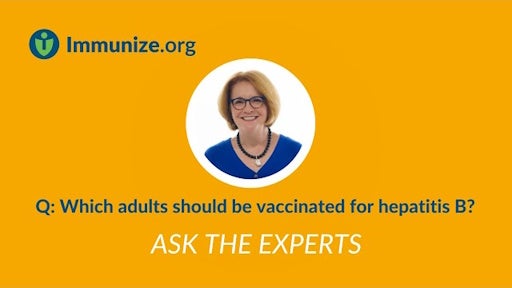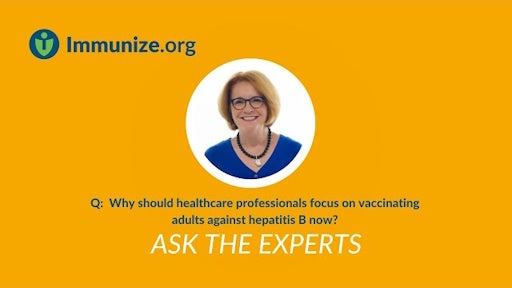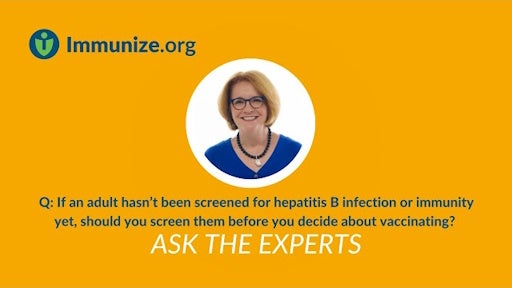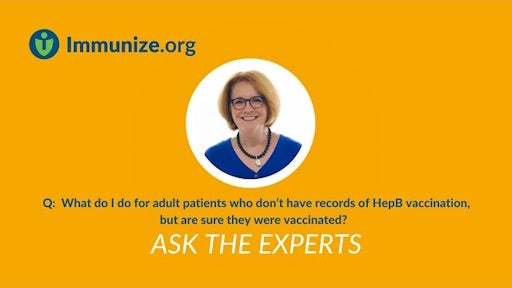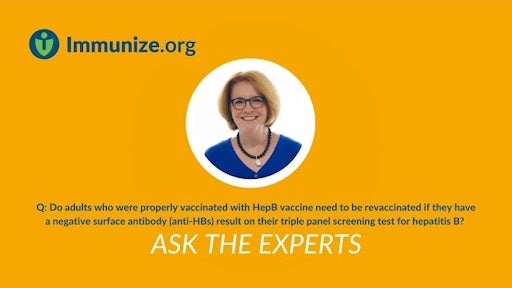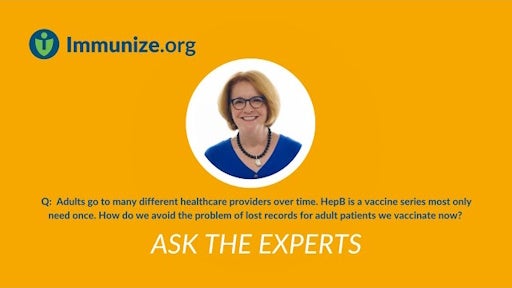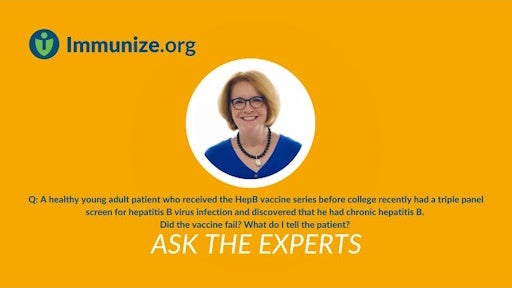- Hepatitis B
- For Adults (Including HBV Screening)
I have seen adults who have had 1 or 2 doses of Twinrix (HepA-HepB), but we only carry single-antigen vaccine in our practice. How should we complete their vaccination series with single-antigen vaccines?
Twinrix is licensed as a 3-dose series for people age 18 years and older (minimum interval between dose 1 and dose 2 is 4 weeks; minimum interval between dose 2 and dose 3 is 5 months). It is also approved for use in an accelerated 4-dose schedule in adults, with doses given at 0, 7, and 21-30 days, followed by a booster dose at 12 months. There is no accelerated schedule for single antigen HepA or HepB vaccines, so the recommendations below presume the use of the Twinrix 3-dose routine schedule, with a minimum interval between dose 1 and dose 2 of 4 weeks.
If Twinrix is not available or if you choose not to use Twinrix to complete the hepatitis A (HepA) and hepatitis B (HepB) series, you should do the following:
- If 1 dose of Twinrix was given, complete the series with 2 adult doses of HepA and 2 adult doses of HepB.
- If 2 doses of Twinrix were given, complete the schedule with 1 adult dose of HepA and 1 adult dose of HepB.
Another way to consider this is as follows:
- A dose of Twinrix contains a standard adult dose of HepB and a pediatric dose of HepA. So, a dose of Twinrix can be substituted for any dose of the HepB series but not for any dose of the HepA series.
- Any combination of 3 doses of adult HepB or 3 doses of Twinrix is a complete series of HepB vaccine
- One dose of Twinrix and 2 doses of adult HepA is a complete series of HepA
- Two doses of Twinrix and 1 dose of adult HepA is a complete series of HepA
